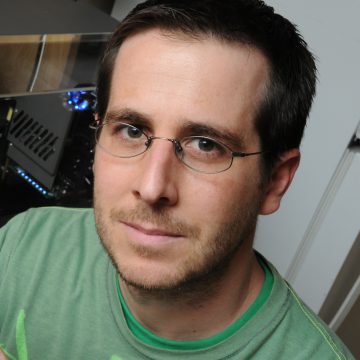Respiratory syncytial virus (RSV) is an extremely common and highly contagious respiratory pathogen, which infects most children before their second birthday. Globally, severe cases of RSV are responsible for about 7 percent of deaths among infants between one month and one year of age.
Even in the US, where deaths from RSV are rare, the virus hospitalizes more than 100,000 children and infants each year, placing a significant burden on the health-care system. Currently, there is no vaccine available to protect the most vulnerable of these populations—premature babies and infants with underlying health conditions.

That may soon change, however, thanks to a collaborative research effort between the pharmaceutical company MedImmune and structural biologist Jason McLellan, PhD, an assistant professor of biochemistry and cell biology at Dartmouth’s Geisel School of Medicine and co-author on the project. In the following Q & A, McLellan shares insights about the study’s promising findings, which are featured as this month’s cover story in the journal Science Translational Medicine.
Q: Can you tell us about the overall research effort and what it was focused on?
McLellan: The overall goal of the project was to develop a highly potent monoclonal antibody with an extended half-life—meaning that it would stay in infants for a much longer period of time—that could act as a vaccine surrogate to prevent severe RSV disease in infants, especially during their first RSV season.
The only approved agent for treating RSV is an antibody called palivizumab or Synagis® (also owned by MedImmune). The idea has been to improve on their current product, which is limited to high-risk infants. While it reduces hospitalization by about 50 percent, Synagis® is expensive to administer—it has to be given (by injection) once per month for five months (during the RSV season).
Q: Why has it been so difficult to develop a vaccine for RSV?
McLellan: The disease is most severe in the very young—the peak age of hospitalization is around 2 ½ months. That’s a difficult time to elicit a strong anti-RSV response because of the immaturity of the infant immune system. There is also the issue that the mothers are passing on antibodies that could potentially bind the vaccine antigen, not allowing infants to make their own response against that antigen.
For these reasons, developing a passive (rather than active) vaccine candidate—as was done in this study with the antibody MEDI8897—is now viewed as a promising alternative for fighting serious RSV disease.
Q: What role did your lab play in the project?
McLellan: MedImmune reached out to us to provide a structural basis for some of the development and optimization of their antibody.
In my lab, we work with a type of protein (class I fusion glycoproteins) that viruses need to gain entry into host cells. Using a technique called X-ray crystallography, we’re able to determine the three-dimensional protein structures in atomic-level detail. Once we know a protein’s structure, it gives us insight into its function. Our ultimate goal is to translate the structural and mechanistic information that we obtain into developing products like vaccines, antibodies, and small molecules that can prevent viruses from causing severe illness and death.
To develop MEDI8897, MedImmune tested about 1500 variants of a potent human monoclonal antibody known as D25. In some of my earlier work, that antibody helped us determine the first crystal structure of the prefusion conformation of the RSV F protein. I had determined the structure of D25 bound to the RSV protein when I was a post-doc at the National Institutes of Health (NIH) back in 2013, which was a major advance in the field. For this project, we worked with MedImmune to structurally characterize the binding of MEDI8897 to the RSV F protein, and explain why certain RSV isolates were not neutralized as well as others.
Q: What were the outcomes of this project, and its chances of success in the future?
McLellan: In preliminary studies, MEDI8897 showed a significantly higher potency and extended half-life than D25—suggesting that the new antibody could effectively neutralize RSV with just one injection per season. This hypothesis was supported with experiments in animals, and MEDI8897 is now being evaluated in phase II clinical trials with high promise.
This idea of using a monoclonal antibody as a vaccine surrogate could be a game-changer—not only in preventing severe RSV in the most vulnerable infants, but in potentially being cost-effective enough to administer to all infants.
It’s an exciting time for developing interventions against RSV, and we’re helping to lead efforts that are proceeding on numerous fronts—from prophylactic monoclonal antibodies to small-molecule inhibitors to new vaccine platforms. Hopefully, in the next five to ten years, we will see multiple licensed interventions that could have a dramatic impact on reducing the disease burden caused by RSV.